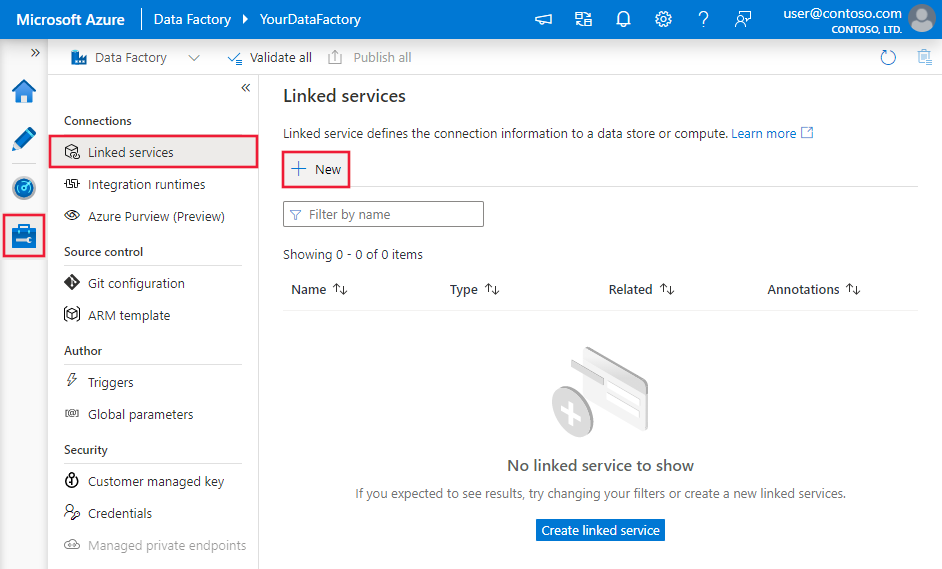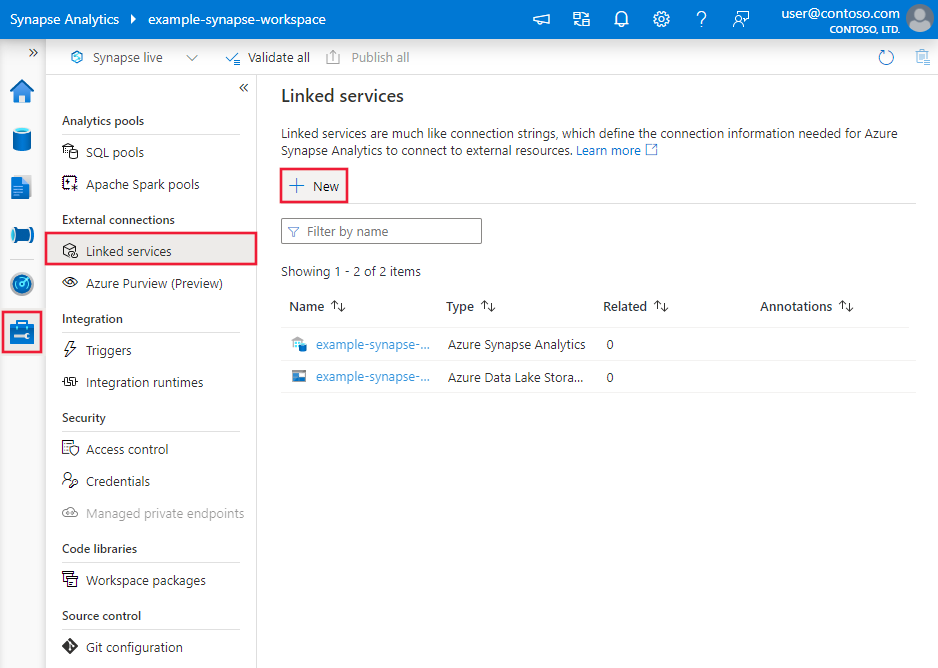Copy data from Couchbase using Azure Data Factory (Preview)
APPLIES TO:  Azure Data Factory
Azure Data Factory  Azure Synapse Analytics
Azure Synapse Analytics
Tip
Try out Data Factory in Microsoft Fabric, an all-in-one analytics solution for enterprises. Microsoft Fabric covers everything from data movement to data science, real-time analytics, business intelligence, and reporting. Learn how to start a new trial for free!
Important
This connector will be deprecated on December 31, 2024. You are recommended to migrate to ODBC connector by installing a driver before that date.
This article outlines how to use the Copy Activity in an Azure Data Factory or Synapse Analytics pipeline to copy data from Couchbase. It builds on the copy activity overview article that presents a general overview of copy activity.
Supported capabilities
This Couchbase connector is supported for the following capabilities:
| Supported capabilities | IR |
|---|---|
| Copy activity (source/-) | ① ② |
| Lookup activity | ① ② |
① Azure integration runtime ② Self-hosted integration runtime
For a list of data stores that are supported as sources/sinks, see the Supported data stores table.
The service provides a built-in driver to enable connectivity, therefore you don't need to manually install any driver using this connector.
The connector supports the Couchbase version higher than 6.0.
The connector now uses the following precision. The previous precision is compatible.
- Double values use 17 significant digits (previously 15 significant digits)
- Float values use 9 significant digits (previously 7 significant digits)
Prerequisites
If your data store is located inside an on-premises network, an Azure virtual network, or Amazon Virtual Private Cloud, you need to configure a self-hosted integration runtime to connect to it.
If your data store is a managed cloud data service, you can use the Azure Integration Runtime. If the access is restricted to IPs that are approved in the firewall rules, you can add Azure Integration Runtime IPs to the allow list.
You can also use the managed virtual network integration runtime feature in Azure Data Factory to access the on-premises network without installing and configuring a self-hosted integration runtime.
For more information about the network security mechanisms and options supported by Data Factory, see Data access strategies.
Getting started
To perform the Copy activity with a pipeline, you can use one of the following tools or SDKs:
- The Copy Data tool
- The Azure portal
- The .NET SDK
- The Python SDK
- Azure PowerShell
- The REST API
- The Azure Resource Manager template
Create a linked service to Couchbase using UI
Use the following steps to create a linked service to Couchbase in the Azure portal UI.
Browse to the Manage tab in your Azure Data Factory or Synapse workspace and select Linked Services, then click New:
Search for Couchbase and select the Couchbase connector.

Configure the service details, test the connection, and create the new linked service.

Connector configuration details
The following sections provide details about properties that are used to define Data Factory entities specific to Couchbase connector.
Linked service properties
The following properties are supported for Couchbase linked service:
| Property | Description | Required |
|---|---|---|
| type | The type property must be set to: Couchbase | Yes |
| connectionString | An ODBC connection string to connect to Couchbase. You can also put credential string in Azure Key Vault and pull the credString configuration out of the connection string. Refer to the following samples and Store credentials in Azure Key Vault article with more details. |
Yes |
| connectVia | The Integration Runtime to be used to connect to the data store. Learn more from Prerequisites section. If not specified, it uses the default Azure Integration Runtime. | No |
Example:
{
"name": "CouchbaseLinkedService",
"properties": {
"type": "Couchbase",
"typeProperties": {
"connectionString": "Server=<server>; Port=<port>;AuthMech=1;CredString=[{\"user\": \"JSmith\", \"pass\":\"access123\"}, {\"user\": \"Admin\", \"pass\":\"simba123\"}];"
},
"connectVia": {
"referenceName": "<name of Integration Runtime>",
"type": "IntegrationRuntimeReference"
}
}
}
Example: store credential string in Azure Key Vault
{
"name": "CouchbaseLinkedService",
"properties": {
"type": "Couchbase",
"typeProperties": {
"connectionString": "Server=<server>; Port=<port>;AuthMech=1;",
"credString": {
"type": "AzureKeyVaultSecret",
"store": {
"referenceName": "<Azure Key Vault linked service name>",
"type": "LinkedServiceReference"
},
"secretName": "<secretName>"
}
},
"connectVia": {
"referenceName": "<name of Integration Runtime>",
"type": "IntegrationRuntimeReference"
}
}
}
Dataset properties
For a full list of sections and properties available for defining datasets, see the datasets article. This section provides a list of properties supported by Couchbase dataset.
To copy data from Couchbase, set the type property of the dataset to CouchbaseTable. The following properties are supported:
| Property | Description | Required |
|---|---|---|
| type | The type property of the dataset must be set to: CouchbaseTable | Yes |
| tableName | Name of the table. | No (if "query" in activity source is specified) |
Example
{
"name": "CouchbaseDataset",
"properties": {
"type": "CouchbaseTable",
"typeProperties": {},
"schema": [],
"linkedServiceName": {
"referenceName": "<Couchbase linked service name>",
"type": "LinkedServiceReference"
}
}
}
Copy activity properties
For a full list of sections and properties available for defining activities, see the Pipelines article. This section provides a list of properties supported by Couchbase source.
CouchbaseSource as source
To copy data from Couchbase, set the source type in the copy activity to CouchbaseSource. The following properties are supported in the copy activity source section:
| Property | Description | Required |
|---|---|---|
| type | The type property of the copy activity source must be set to: CouchbaseSource | Yes |
| query | Use the custom SQL query to read data. For example: "SELECT * FROM MyTable". |
No (if "tableName" in dataset is specified) |
Example:
"activities":[
{
"name": "CopyFromCouchbase",
"type": "Copy",
"inputs": [
{
"referenceName": "<Couchbase input dataset name>",
"type": "DatasetReference"
}
],
"outputs": [
{
"referenceName": "<output dataset name>",
"type": "DatasetReference"
}
],
"typeProperties": {
"source": {
"type": "CouchbaseSource",
"query": "SELECT * FROM MyTable"
},
"sink": {
"type": "<sink type>"
}
}
}
]
Lookup activity properties
To learn details about the properties, check Lookup activity.
Related content
For a list of data stores supported as sources and sinks by the copy activity, see supported data stores.

